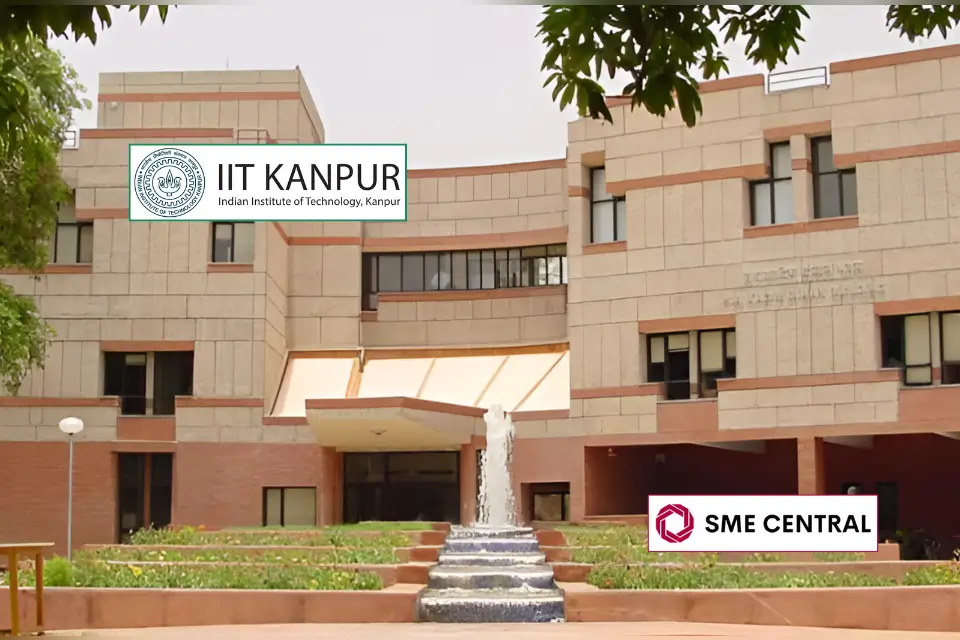In an era where advanced characterization technologies increasingly shape the future of materials engineering and innovation, the IIT Kanpur has again taken center stage. Its Advanced Centre for Materials Science (ACMS), in collaboration with the Department of Materials Science and Engineering (MSE), hosted a high-impact one-day workshop on Atom Probe Tomography (APT) on 11 September 2025.
The event drew over 80 participants, including students, scholars, faculty, and industry professionals, underscoring the scientific community’s appetite for state-of-the-art analytical tools.
A Platform for Collaboration and Innovation
The workshop wasn’t merely academic. It was a strategic initiative designed to broaden access to the National Facility of Atom Probe Tomography (NFAPT) at IIT Madras, coordinated through the ACMS nodal centre at IIT Kanpur. By making APT more accessible, IIT Kanpur is positioning itself as a vital node in India’s innovation ecosystem — empowering both academia and industry to solve real-world challenges with atomic-level precision.
The inaugural session featured leaders such as Prof. Niraj Chawake (Nodal Coordinator, NFAPT-IITK), Prof. Anish Upadhyaya (Head, ACMS), and Prof. Kantesh Balani (Head, MSE, IIT Kanpur). Prof. Upadhyaya emphasized ACMS’s role in equipping researchers with cutting-edge tools, while Prof. Balani urged participants to harness this “unique opportunity” to drive materials breakthroughs.
Technical Discourse
The technical program was nothing short of global in scale, bringing together leading minds from India, the U.S., South Korea, and Japan.
- Dr. Heena Khanchandani (IIT Kanpur) laid the groundwork with an introduction to APT’s fundamentals and applications.
- Dr. Arun Devaraj (Pacific Northwest National Laboratory, USA) showcased nanoscale characterization under extreme environments.
- Dr. Surendra Makineni (IISc Bengaluru) explored the synergy between electron microscopy and APT for structural alloys.
- Dr. Se-Ho Kim (Korea University) highlighted how APT is shaping materials design.
- Dr. Rama Srinivas Varanasi (Tohoku University, Japan) presented pioneering research on defect-assisted phase transformations in steels.
The collective knowledge exchange not only validated the workshop’s international relevance but also demonstrated how India is embedding itself deeper into global research networks.
Infrastructure and Access
Beyond lectures, participants toured ACMS’s NFAPT-IITK nodal facility and other advanced labs, gaining firsthand exposure to cutting-edge characterization instruments. Such demonstrations highlighted IIT Kanpur’s role as a gateway to world-class facilities — a powerful draw for collaborative projects across academia, government labs, and private R&D.
Human Capital: The Silent Engine
The valedictory session celebrated the often-unseen efforts of student volunteers and ACMS staff. Names like Mr. Aniket Dwivedi, Mr. Pushpendra Dohare, and Mr. Ravindra Agnihotri were spotlighted for ensuring seamless execution — a reminder that events of this scale hinge not only on technology and funding but also on dedicated human capital.
Strategic Implications for Science and Industry
APT, with its ability to map atomic arrangements in 3D, has profound implications for industries ranging from aerospace alloys to semiconductors. For India, nurturing expertise in APT aligns with national ambitions of technological self-reliance and advanced manufacturing. IIT Kanpur’s initiative signals that Indian academia is not merely consuming global knowledge but actively shaping the frontier of materials science.
From a macro perspective, the workshop highlights three trends worth noting for investors and policymakers:
- Deep-Tech Infrastructure: Growing investment in facilities like NFAPT cements India’s capability to compete globally in advanced R&D.
- Industry-Academia Convergence: The presence of industry professionals hints at commercial applications and possible spin-offs.
- Talent Pipeline: With nearly 10,000 students and 590 faculty, IIT Kanpur’s efforts ensure that future scientists are trained on frontier tools.
About IIT Kanpur
Established in 1959, IIT Kanpur spans 1,050 acres, with 19 departments, 26 centers, and a robust ecosystem of interdisciplinary programs. With over 9,500 students and 590+ faculty, it continues to cement its reputation as a leader in education, research, and technological innovation — recognized as an Institute of National Importance by the Government of India.
Final Word
By hosting this APT workshop, IIT Kanpur has reinforced its role not just as an academic hub but as a strategic player in India’s scientific and industrial landscape. The event bridged continents, disciplines, and generations of researchers — reaffirming that the future of materials science will be written not just in labs but in collaborative workshops like this, where ideas and expertise converge.

